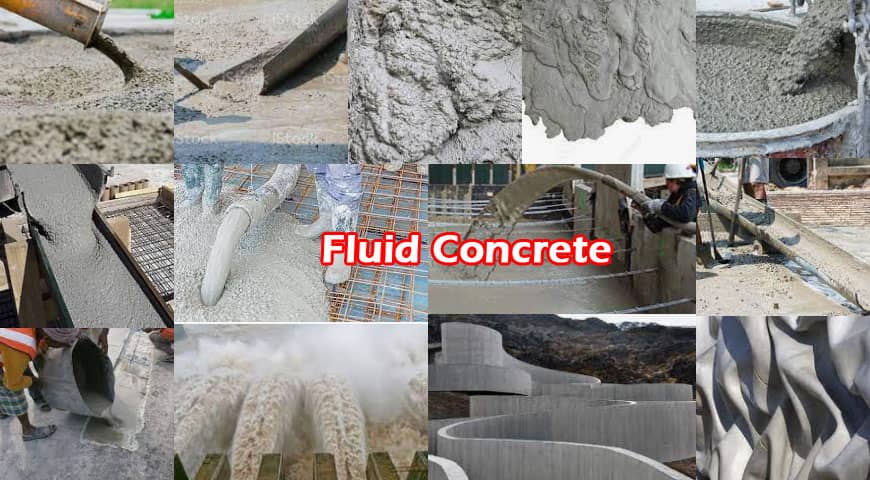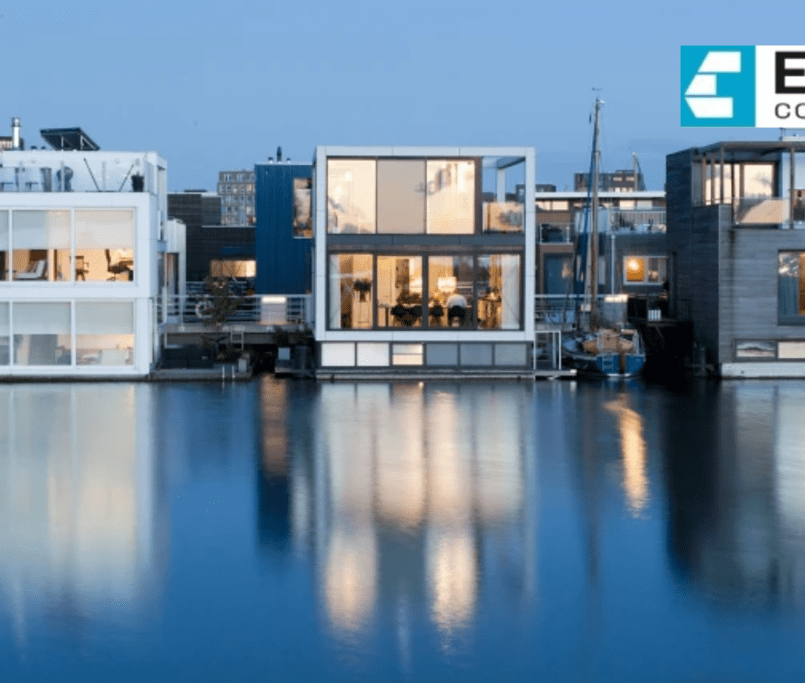Fluid Concrete: Its Applications and Benefits in Construction
For all kinds of hard surfaces, Fluid Concrete is a cement-based, self-levelling floor coating. It
offers beautiful and durable surfaces for practical concrete finishes and is especially suitable
for interior applications.
It serves as a substitute for polished concrete and is ideal for a contemporary, minimalist
design because it may be used with ceramic, wood, and underfloor heating. Fluid Concrete
reduces the time needed for application and maintenance by getting rid of the dirt and any
potential for indoor activity disturbance caused by the laying of conventional concrete.
Self-consolidating Concrete, or fluid concrete, has the following characteristics:
- High Flowability:
SCC has a high flow rate, which makes it simple for it to spread out and fill molds or
formwork. Although it maintains its cohesion, it flows like a liquid. - Self-Levelling:
Because fluid concrete flows easily when poured into molds or forms, it
automatically levels itself, assuring even distribution and negating the need for hand
levelling. - Reduced Segregation:
SCC is designed to reduce the possibility of aggregate segregation and bleeding,
which are frequent problems with conventional concrete mixtures. - High Strength:
SCC is suitable for a variety of structural applications because it can attain high
compressive strengths that are comparable to those of standard concrete mixes. - Improved Surface Finish:
SCC is perfect for architectural and exposed concrete applications due to its smooth
and uniform surface finish. - Reduced Vibration and Noise:
By eliminating mechanical vibration, construction sites will be quieter, and workers’
chances of developing hand-arm vibration syndrome will be reduced.
Applications of Fluid Concrete (SCC):
- It is suitable only for indoor applications.
- Fluid Concrete is applicable on ceramic, marble, mosaic, and tiles.
- It is a good choice for kitchens and bathrooms, and other spaces in the house.
- Permits on-site concrete renovation.
- Fluid Concrete is suitable for high-traffic areas like shops, restaurants, hotels, and
schools.
Advantages:
- It can be used on a variety of indoor hard surfaces, including marble, ceramic,
porcelain, tile, plaster, mortar, and concrete. - Similar in appearance and texture to polished concrete is fluid concrete.
- It provides a seamless surface and is simple to maintain because it does not require
expansion joints. - High-traffic areas can benefit from Fluid Concrete’s high-quality, robust, sturdy, and
durable surface. - Fluid Concrete can replace traditional flooring such as wood because it requires no
upkeep. - It is extremely resistant to UV light.
- Fluid Concrete has a thin layer and can be walked on quickly after installation.
- It does not require intensive construction work and may be applied fast.
It is vital to note that the precise mix design for fluid concrete may vary depending on
project needs, such as intended strength, workability, and durability. SCC mixes can be
adjusted by manufacturers and concrete suppliers based on project parameters and
regional materials.
Disclaimer: This content is provided solely for your review. Erusu Consultants takes no liability for this article. The reader is advised to form their own opinion. Please consult a Structural Engineer before making any final decisions.






